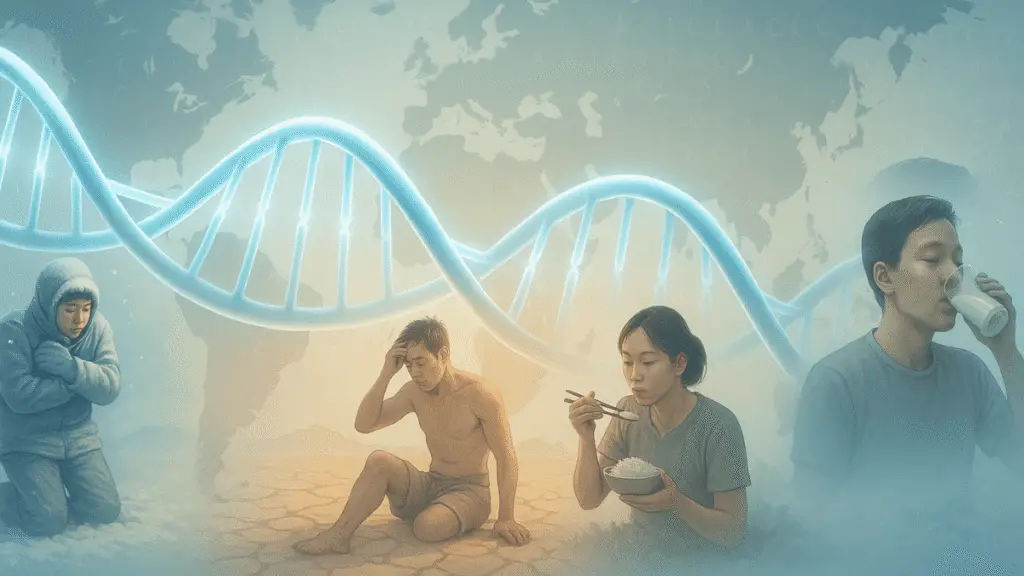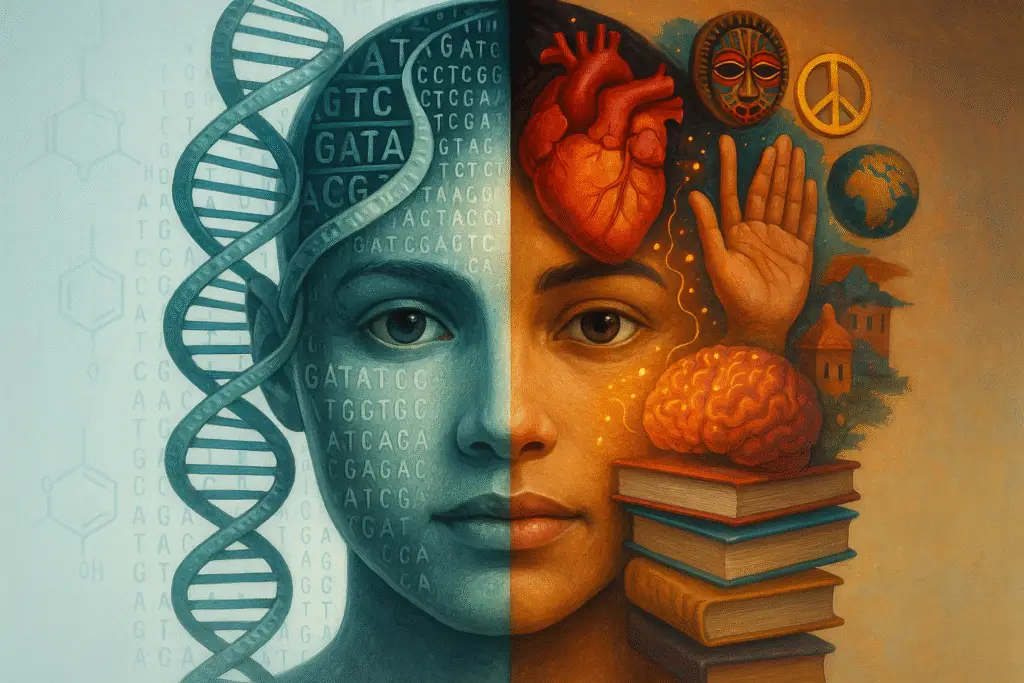Krutesh, a master’s fellow, landed in the cold countryside of the UK, but even after six months, runny nose, fatigue and low immunity wouldn’t leave him. Maria has the same story. She is constantly suffering from digestive problems and insomnia after moving to Tokyo.
These are the stories of thousands of students and people migrating from one part of the world to another. But why does this happen? Does that mean we never have to migrate or leave our country?
No, you can! But…
Any sudden change isn’t good for your DNA, and that’s why they all have to face such conditions. Now, how does your DNA decide what’s best for you and what’s not? Let’s answer this question.
Key Topics:
How Your DNA Decides What is Best for You
You get your DNA from your parents! And they from their. It has been happening for thousands of years and even more. In other words, our DNA has thousands of years of information to process.
And for what purpose?
Obviously, to give you a better life. During every generation, DNA learns something new, makes some changes, tries it, approves it, and then passes it on to the next generation. The next generation has the ready-to-use traits.
Now you may have a question: how does a change in DNA occur, or why does it even need to?
How do changes in DNA occur?
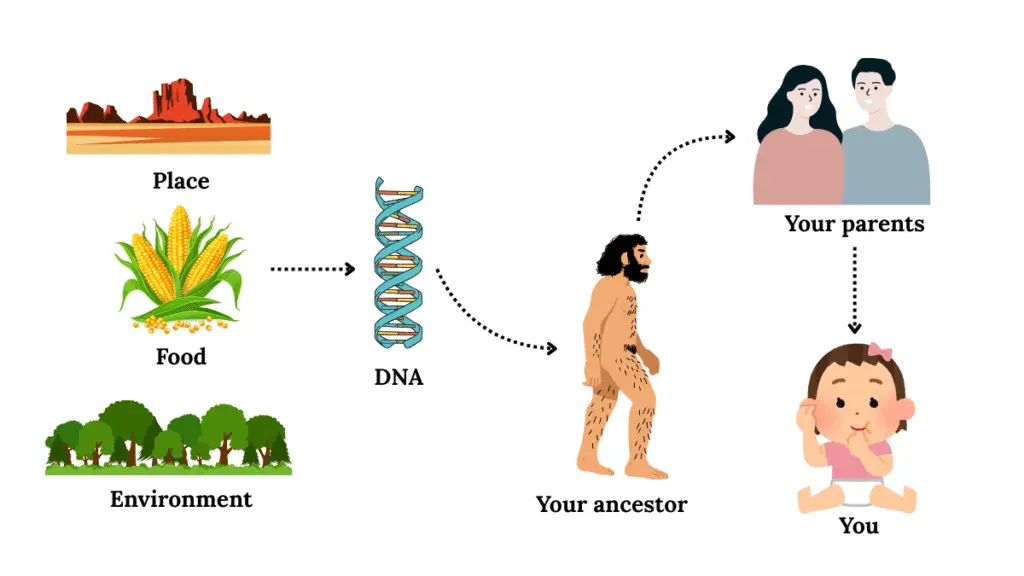
DNA (Deoxyribonucleic acid) is a highly sensitive and dynamic molecule. Minute changes around, either intrinsic or extrinsic factors, cause substantial changes in our DNA. For instance, where you are living, what you are eating or even what you are thinking…
All these and thousands of other factors impact our DNA. It either damages our DNA or alters gene expression. For instance, the African population has an outstanding sickle cell variant for the HBB gene, helping them against the deadliest malaria parasite.
Now, this variant is naturally inherited generation after generation, because the population living in Africa needs it. Our DNA knows that.
Hence, information present in our DNA, which we get from our parents, is the best and optimized user manual for us to live in a particular condition, area or country.
Maize is a staple and common food in Latin America, while extremely high temperature is the common climate condition in Death Valley, USA. People living in these areas have a natural DNA variant to digest maize or fight heat, respectively.
Their ancestors have shaped their DNA by living, eating, fighting and surviving in these regions. And readily served it to you.
Your parents’ homeland is the best place
Meaning, your ancestors or your parents’ homeland, the place they are living, is the best place, the food they are eating is the best food options and the conditions they are facing are the best conditions for you.
The reason, it’s already in your DNA and shaped accordingly.
Hence, when you migrate from one country to another, you are giving your DNA entirely a new set of signals- new food, conditions, people, place to live and environment to live.
In this situation, DNA has to overwrite the information again and prepare a new set of instructions in your user manual for your better adaptation.
Does that mean we should not have to move to the USA or UK, as it isn’t best for us? Here is another catch! Hold on and let me explain.
Understand the evolution
Research suggests homo sapiens evolved in Africa. It’s the place for the evolution of life as well. In recent times, the entire world has been captured by sapiens. Meaning, they evolved in Africa but migrated out.
They migrated to the East, then America, Australia and other regions. Keep in mind, this process occurred over thousands of years, not overnight.
So thankfully, our DNA also has a substantial blueprint of migration and ‘some’ special clause in the manual, when you migrate. It can try adapting changes as soon as possible, because DNA has done that millions of times during evolution.
So in most cases, your body will adapt to the new location, unless it is too extreme, for instance, extreme cold, heat or pollution.
However, as I told you, DNA is dynamic. Therefore, not all have similarly trained DNA and capacity or immunity to fight against new climate, infection or conditions, etc.
Related articles:
- Is Migraine Genetic

- 7 Rare Case Scenarios of Taste and The Genetics Behind Them
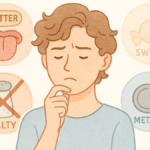
- 5 Traits You Won’t Believe Are Genetic
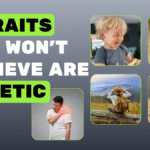
- How Malnutrition Can Affect Our Genetic Health
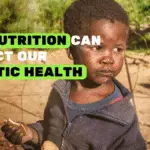
- How Fasting Can Benefit Your Genetics
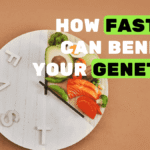
Wrapping up:
Long story short, the best place, food, conditions and living habits for you are those that your parents follow! They and their parents built it for you. And you will build it for your children.
So, always listen to your parents and obey them! But a small twist in the story at last. DNA also needs ‘some’ diversity to test new instructions. Don’t catch the point? Comment below and let me know. I will explain it.
Like the article? Share it and subscribe to Genetic Education.
